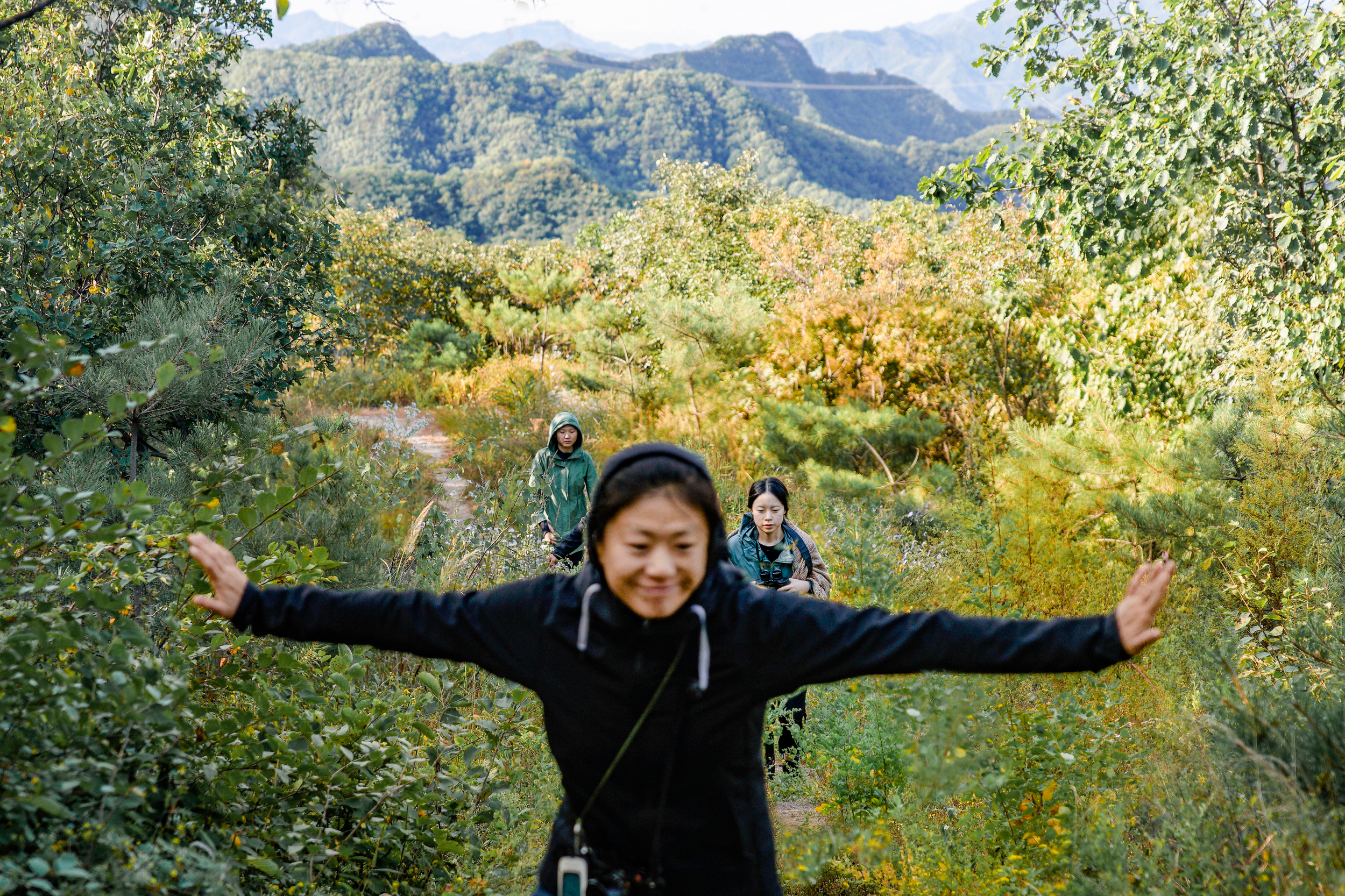The protagonist of the latest from the ‘Let’s Talk About Climate Change’ series, Robert Ferguson, is a Hong Kong wildlife photographer living in the city for 30 years. It is saddening to bid farewell to Robert, a passionate and bold fellow, who has decided to move his home base to England. He shares how mesmerising Hong Kong wildlife is, his views on the environmental policy and the local ecosystem, and also the reasons for leaving Hong Kong.
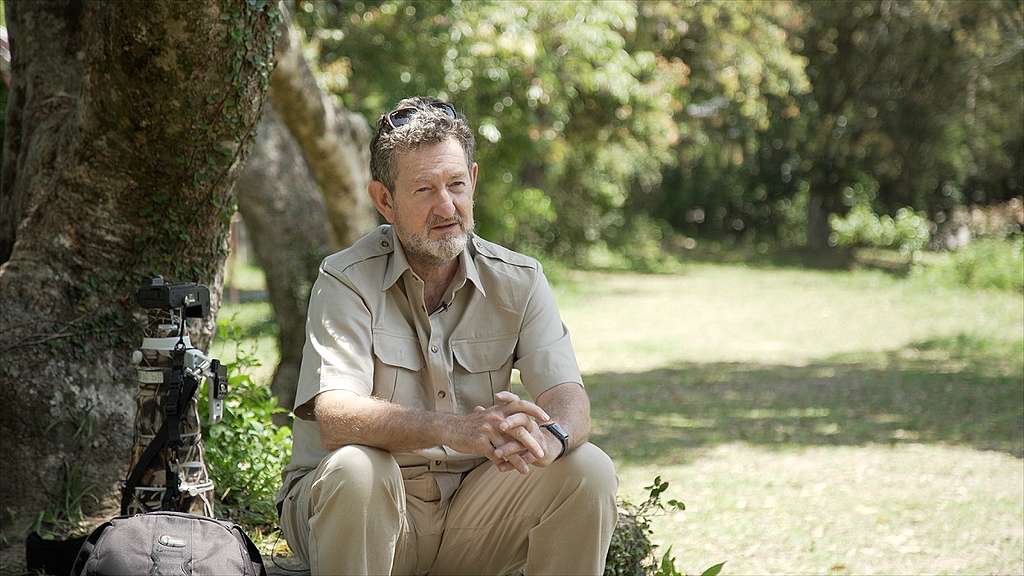
Wildlife Photographer
Robert and his ‘Hong Kong WildCreatures’ are no stranger to passionates for environmental photography and nature in Hong Kong. He is a highly respected individual well-known for his knowledge and passion for wildlife and nature.
Robert Ferguson’s wildlife works
- Hong Kong WildCreatures blog and Facebook page
- WildCreatures in Hong Kong Volume I (with Chinese version) and Volume II
- A Field Guide to the Snakes of Hong Kong – co-produced with the author, Adam Francis
- Hong Kong Snake ID (website on Hong Kong snake identification), a joint project with Adam Francis
- The Bugs of Hong Kong (guidelines to insects, spiders, myriapods (the multi-feet) and more in Hong Kong)
A Swiss-born British, Robert developed his interest in the wild creatures by hiking with his nature-loving parents as a kid. He followed his girlfriend, now his wife, moving to Hong Kong in 1990. The lady is good at map reading, and the public transport from downtown to the countryside is highly convenient. They spent their off-work time discovering the countryside of Hong Kong and he gradually grew his interest in wild sides. Working in the media and business field back then, he was more into playing tennis and making money though, and he did not know much about animals in Hong Kong.
In 2018, Robert came across a turning point in his life priorities. He was let go of his full-time job and could retire then, yet he didn’t want to sit and watch TV the whole day. It motivated him to go outdoors more often. ‘It is a big difference, just to go hiking and appreciate nature. ‘The moment you began to get hooked then you want to learn more. it‘s a natural progression that you have time, and you have more interest, then, you want to learn more.’
He began shooting bugs and birds, growing interest in the wild creatures, and began to study them. ‘Since I have the photos and I have the knowledge, I wrote about it, then I think why not share it with more people. That’s how I got started with my daily blog about animals in Hong Kong.’ Not knowing Cantonese and Chinese himself, the Chinese content of the Facebook page is available with his extensive cooperation in translating it into Chinese.
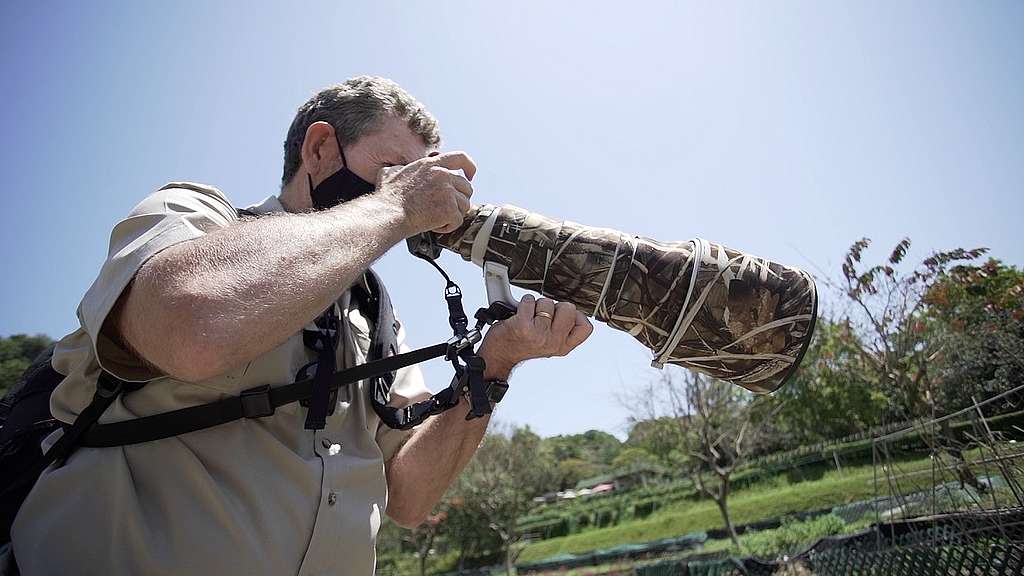
Starting his career as a photojournalist, Robert introduced himself to us as a wildlife photographer, “a student of the natural world”. He turned his profession into a life career in the ecology sphere. Humbly he iterated he does not know much about ecology, and he loves learning from nature and shared his love of it.
Layman
Fun and down to the ground, Robert jokingly mentioned only mad dogs and Englishmen went to the countryside in Hong Kong three decades ago, but passionate local hikers have been growing in recent years. During the interview, he often stressed himself as a ‘layman’, a perfect position to fill in the gap in ecological movement in the city. Hundreds and thousands of natural environment publications could be found in the United Kingdom. In contrast, though there are quality field guides in Hong Kong, the city lacks publications catering to general laymen to learn about bugs and animals in Hong Kong.
Through the devoted environmental photo-shooting and learning in the past few years, he feels he knows a little bit more which is enough for sharing with others. ‘I am just sharing my passion for the natural world. You got to have a thick skin about that.’
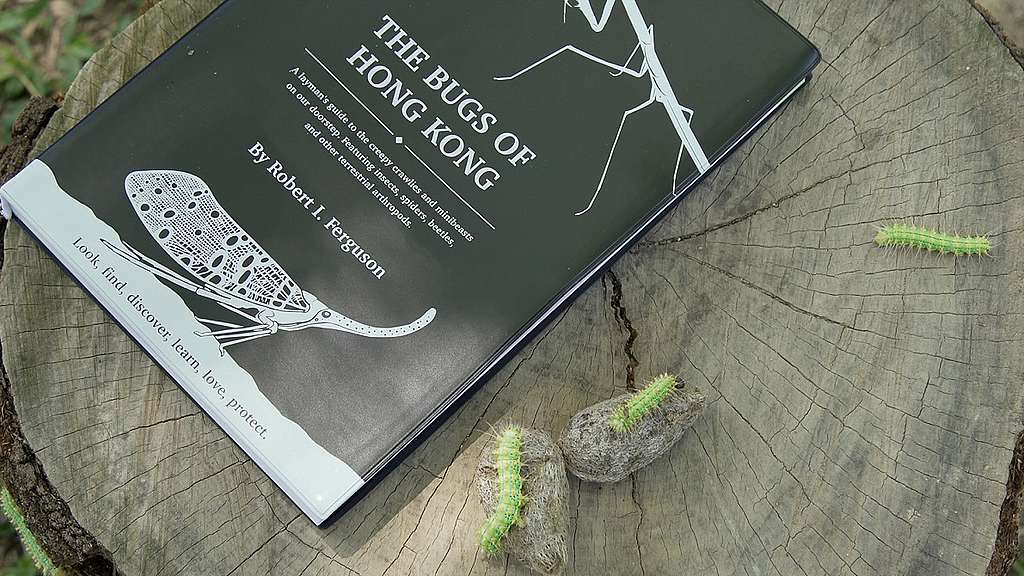
Biodiversity in Hong Kong: Key to Climate Change Solution
“Hong Kong is absolutely fabulous in biodiversity. Given the size of Hong Kong, we have:
(for some species) 15-20% of the entire biodiversity of China;
in the marine area, 26 % of the organism found in China;
many dragonflies in Hong Kong as in the whole of Europe;
and, I can see more bird species in Hong Kong in one day than I can perhaps 10 years in England,” said Robert Ferguson
Biodiversity protection is a crucial key to the solution to global climate change. However, we are now risking the disastrous loss of biodiversity in the world. In Hong Kong, environmental values and protection are yet to be attended to, not to mention the public’s engagement in it. We hope you find Rober’s sharing at the ‘Let’s Talk About Climate Change’ enjoyable to you, and that you would be motivated by his passion and joining us to protect nature.
First Taste of Eco-education
The motto that appears in both Robert’s books and website is ‘Look, Find, Discover, Learn, Love, Protect’. To Robert, the difference happened from the moment he went out and spent more time with nature. It is a good sign to see more people hiking recently.
He pointed out, ‘That’s a big jump to expect people to say, “oh, It is beautiful” to “Look at the caterpillar and learn about the life cycle.’ ‘Lots of people appreciate the amazing natural environment in country parks in Hong Kong, but it’s another step to learn about the animals.’
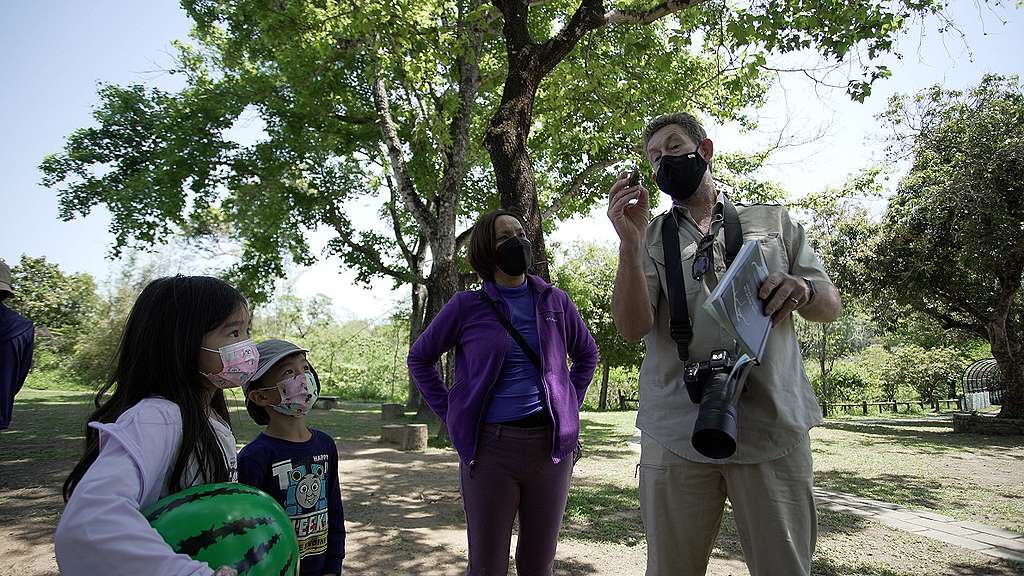
He started to do more education-related work the past year, collaborating with schools and engaging in talks. ‘I must admit I really enjoy that aspect.’ He likes taking people on tours, showing them the wildlife of Hong Kong, seeing how the children and people get engaged, and ‘the feedback is really positive. He found people in Hong Kong incredibly receptive to learning more. What they do not have is a forum or a platform for deepening their learning and engagement.
He regarded the government-run platform on biodiversity education as not sophisticated enough, and that it could be more interesting and less childish. In his view, non-governmental organisations such as Outdoor Wildlife Learning Hong Kong (OWLHK), World Wild Fund for Nature (WWF), Hong Kong Bird Watching Society and Kadoorie Farm and Botanic Garden, are doing great jobs offering educational programs and schemes, and Greenpeace helps promote environmental education to the public in a different approach.
Leaving for Returning
The covid comes at bad timing, hindering Robert’s new life focus in Hong Kong. The education system basically shut down. Touring, school activities and public forums are suspended, and most collaborating organisations are financially struggling to survive. He treasures the liberty to travel, and Hong Kong as his base for reaching out to field study and photography to Myanmar, India and Africa has been losing its strength. He is feeling strangled by the travel and covid-related restrictions in the recent 2 years. What also soars Robert is seeing the environmental destruction in the city. He tried to reflect on the problem and recommendations to the government but in vain. He would rather leave the place than keep on complaining.
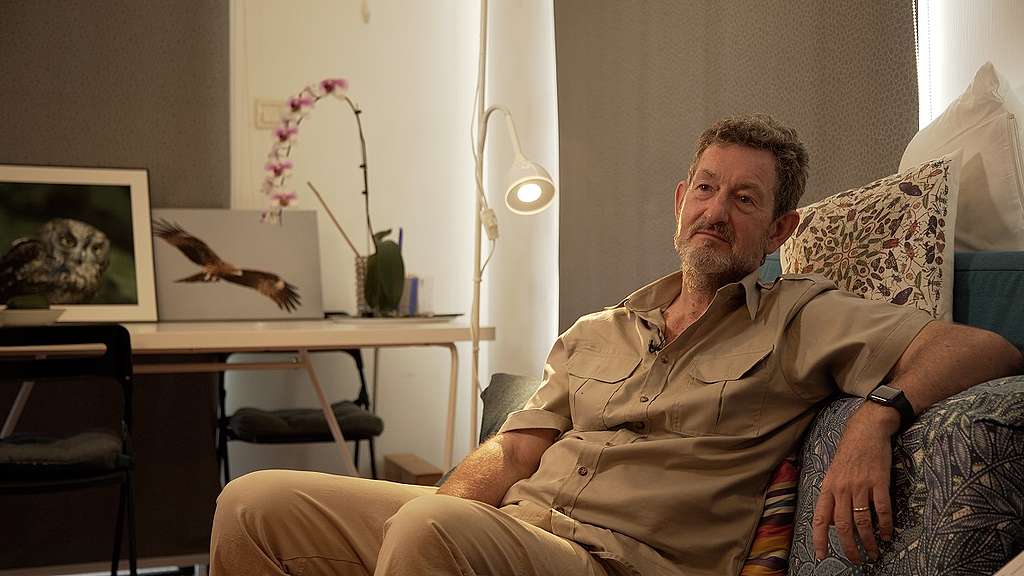
Robert will reside in England as his new base. In spite of this, he has not given up his wildlife and related educational work in Hong Kong. He will keep on updating the ‘Hong Kong Wildcreatures’ website and spend his coming winter in London, and completing his children’s book project. By spring of next year, he will return to Hong Kong for several good months to promote the children’s book launch.
A Few Lines to Hong Kong
Departing from Hong Kong does not stop Robert shows his concern about the prospect of our nature. He remarks on the government for failing to deliver on habitat, biodiversity or other park management plan as promised and noted as a priority in the Biodiversity Strategy and Action Plan in 2016 despite a think tank giving them a clear road map [1]. As an extended member of the global Convention on Biological Diversity, Hong Kong has only achieved 6 (partially, not fully!) out of 20 Aichi Biodiversity Targets (ABT) [2].
Outstandingly rich in biodiversity, Hong Kong Country Parks are places where precious natural heritage can be found. The urban development policy has yet to address the values of biodiversity in the countryside. He finds the need to call on our support of the contributing non-governmental organisations and related parties to empower our environmental protection initiatives. To this end, Robert encourages us to join him in this endeavour.
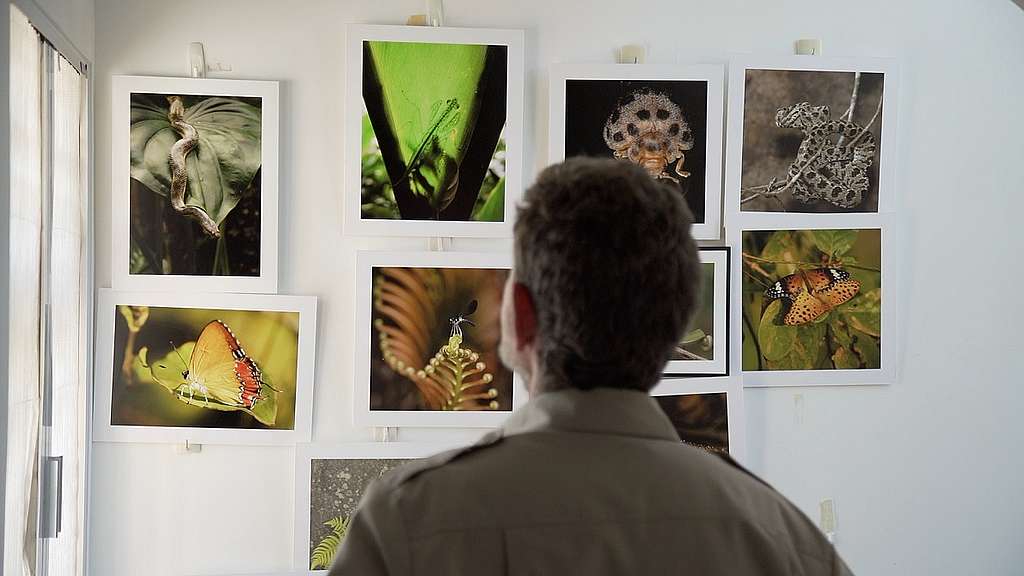
Remarks:
About “Let’s Talk about Climate Change” series
Climate change is not only here, but it has also evolved to “Climate Emergency”. As global citizens, we should not ignore the crisis we are in. Yet sometimes if not all, we might feel the issue is too big for us or too far away. We are inviting people in our local community, from all walks of life, to share with us how they connect to and make the effort to deal with climate change. Read More



